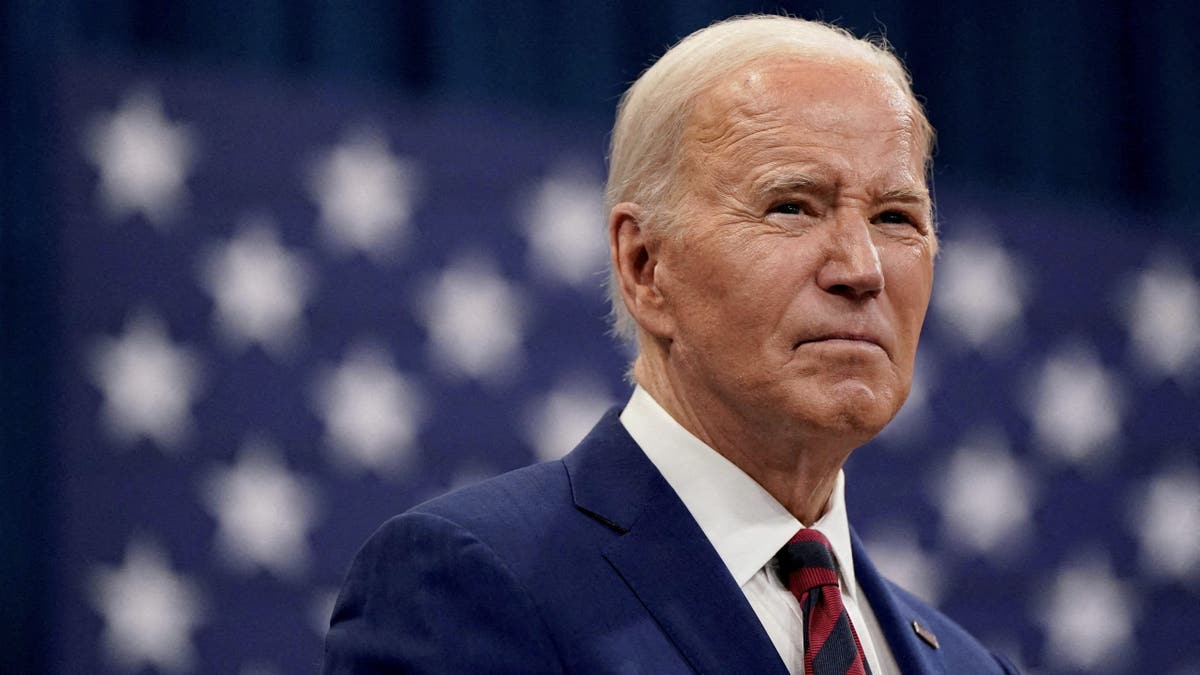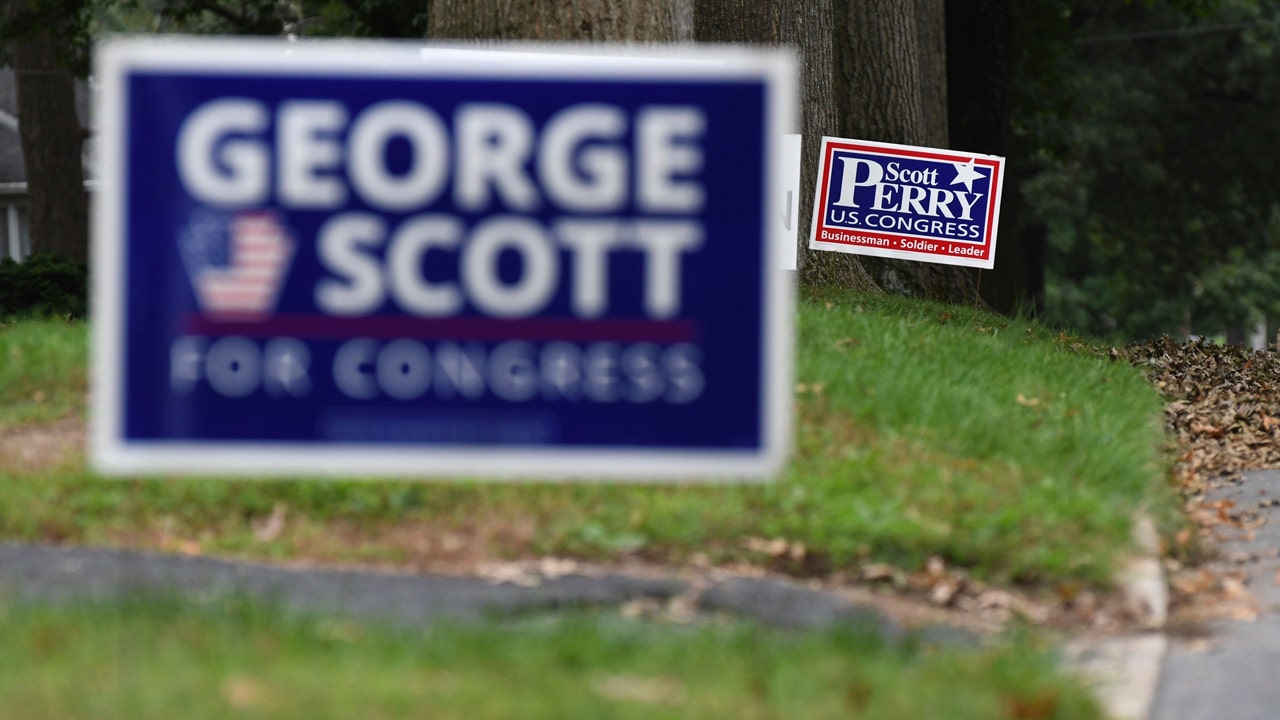Politics
Why It’s Far Too Soon to Say DeSantis Is Done

Is the Ron DeSantis campaign already over?
After the last few months, it’s hard not to wonder. His poll numbers have plummeted. Would-be donors seem skeptical. Pundits have questioned whether he should even run at all.
But as he finally announces a presidential bid, expected later today, it is worth mulling his path back to contention. Despite it all, Ron DeSantis could still be the next Republican nominee.
That might seem hard to imagine, but fortunes can change astonishingly quickly in presidential primaries. There are still more than six months until the Iowa caucuses, and there will be plenty of opportunities for him to right his ship.
In the end, the factors that made Mr. DeSantis formidable at the beginning of the year could prove to be more significant than the stumbles and miscues that have recently hobbled him. The damage is not yet irreparable.
Of course, the fact that he could mount a comeback doesn’t mean he will come back. His campaign’s decision to announce his bid on Twitter tonight forfeits a rare opportunity to be televised live on multiple networks in favor of a feature, Twitter Spaces, that I don’t even know how to use as a frequent Twitter user. And even if his campaign is ultimately run differently than it has been so far, it’s not clear that even a perfectly run Republican campaign would defeat Donald J. Trump — at least if the former president survives his various legal challenges politically unscathed.
But if you’re tempted to write off Mr. DeSantis, you might want to think again. The history of primary elections is littered with candidates who are written off, only to surge into contention. Unknown candidates like Herman Cain briefly become front-runners. Early front-runners like Joe Biden and John McCain are written off, then come back to win. Even Barack Obama spent six months struggling and trailing an “inevitable” Hillary Clinton by double digits.
Perhaps one day we’ll say something similar about Mr. DeSantis’s candidacy. As with the candidates who ultimately surged back to victory, the strengths that made Mr. DeSantis seem so promising after the midterms are still there today. He still has unusually broad appeal throughout the Republican Party. His favorability ratings remain strong — stronger than Mr. Trump’s — even though his standing against Mr. Trump has deteriorated in head-to-head polling. He is still defined by issues — like the fight against “woke” and coronavirus restrictions — that also have broad appeal throughout his party. If this was enough to be a strong contender in January, there’s reason it might be again.
While it’s easy to see Mr. DeSantis’s decline over the last few months as a sign of profound weakness, the volatility of the polling can also be interpreted to mean there’s a large group of voters open to both candidates. They might be prone to lurch one way or the other, depending on the way the political winds are blowing.
Mr. DeSantis’s strategy so far this year may have also increased the likelihood of big swings. As I wrote last week, there are two theories for defeating the former president — Trumpism without Trump, and a reinvigorated conservative alternative to Trump. Of the two, the proto-DeSantis campaign can more easily be interpreted as a version of Trumpism without Trump. If his campaign has done anything, it’s to narrow any disagreement with Mr. Trump — even to a fault. Mr. DeSantis hasn’t really made either an explicit or implicit case against the former president. Perhaps worse, he hasn’t punched back after being attacked.
This combination of choices has helped set up an unusually rapid decline in Mr. DeSantis’s support. After all, the only thing that unifies a hypothetical Trumpism without Trump coalition is opposition to Mr. Trump and the prospect of beating him. If you’re not attacking him and you’re losing to him, then you’re not saying or doing the only two things that can hold your supporters together.
The evaporating basis for Mr. DeSantis’s support has played out subtly differently on two different fronts. On the right, conservative voters open to someone other than Mr. Trump nonetheless have returned to the side of the former president. What kind of conservative wants Trumpism without strength? Toward the center, the many relatively moderate and neoconservative establishment Republicans who yearn for a candidacy opposed to Trumpism, not just to the conduct of the man himself, have withheld crucial support for Mr. DeSantis and flirted with other options, from Chris Christie to Chris Sununu.
But if the DeSantis campaign can revitalize the case for his Trumpism without Trump candidacy, he might quickly reclaim many of the voters who backed him a few months ago. Indeed, it’s even possible that the current media narrative and low expectations are setting the stage for a DeSantis resurgence.
Imagine what it might feel like if he launched a successful, vigorous attack against Mr. Trump after all of these months on defense. What might have otherwise been a routine sparring match would be imbued with far greater significance, unleashing months of pent-up anxiety among his supporters. What if part of the reason he’s announcing his candidacy on Twitter is to mock Truth Social? Silly as it sounds, successfully putting down Mr. Trump might breathe life into his candidacy — and the media loves a comeback story.
One important factor keeping Mr. DeSantis’s path open is that, so far, none of the potential moderate alternatives to him have gained a foothold in the race. If they did, it would deny him the moderate and neoconservative voters who supported the likes of John Kasich and Marco Rubio in the last primary. He would essentially become another Ted Cruz.
But for now, Mr. DeSantis is the only viable not-Trump candidate in town. As long as that’s true, he will have every chance to rebound among the voters who would prefer someone other than Mr. Trump — if there is a market for someone other than Mr. Trump.
In the end, whether there’s sufficient demand for a Trump alternative may be the bigger question than whether Mr. DeSantis can resuscitate his campaign. With Mr. Trump already holding more than 50 percent support in the polls, actually defeating Mr. Trump might require some breaks, like the possibility that his legal challenges are worse than we might assume. It might also require a DeSantis win in Iowa to break Mr. Trump’s grip on a crucial segment of the party, much as the midterms seemed to temporarily crack Mr. Trump’s base last winter.
But even if Mr. Trump is a clear favorite, it’s easy to see how Mr. DeSantis can at least make this a competitive race again. When he’s able to focus on his own issues, he has a distinctive political brand with rare appeal throughout a divided Republican Party. With expectations so low, the groundwork for a recovery might even be in place. It’s happened before.

Politics
Trump Has Long Been Known as a Micromanager. Prosecutors Are Using It Against Him.
Witnesses have described the former president monitoring the minutiae of his business, a portrait prosecutors are drawing to help convince the jury that he couldn’t have helped but oversee a hush-money payment to avoid a damaging story.
Politics
Tales from the trail: The blue states Trump eyes to turn red in November

Former President Donald Trump is headed back to the Jersey Shore.
“We have a tremendous rally and hope you’re all going to be there. It’s in Wildwood, New Jersey. It’s going to be a big crowd,” the former president touted on the eve of his Saturday rally.
Wildwood, at the southern tip of the Jersey Shore, is part of the Garden State’s Cape May County, a heavily Republican county in a longtime blue state.
Trump held a rally in Wildwood in January 2020. But the then-president ended up losing New Jersey by 16 points to President Biden four years ago.
WHERE THE BIDEN-TRUMP REMATCH STANDS SIX MONTHS UNTIL ELECTION DAY
President Donald Trump attends a rally at the Wildwood Convention Center in Wildwood, New Jersey, on Jan. 28, 2020. (Tayfun Coskun/Anadolu Agency via Getty Images)
For Trump, the weekend rally is a short distance from New York City, where he’s spending his weekdays in court, making history as the first former or current president to stand trial in a criminal case.
“We’re going to try and win the state of New Jersey. I want the people to know that I love it,” Trump predicted Friday in a local radio interview in the Garden State. “You know, it’s not just going to be like, gee, maybe we can get close. We’re going to win it.”
But Democratic Rep. Mikie Sherrill of New Jersey, a Biden surrogate, told reporters a few hours later that “Jersey is not going to be a welcoming place for Trump.”
And Biden campaign communications director Michael Tyler noted that “Trump’s team is talking about New Jersey. They’re talking about holding concerts in Madison Square Garden to turn out voters in states like New York. I think here on planet earth in the Biden campaign, we’re going to remain laser focused on winning 270 electoral votes.”
CLICK HERE FOR THE LATEST FOX NEWS POLLING IN THE 2024 ELECTION
While flipping the Garden State may not be at the top of the Trump campaign’s to-do list, it is spotlighting his chances in two other blue states Biden won comfortably in 2020 — Minnesota and Virginia.
As the Trump and Biden campaigns prepare for battle in seven crucial swing states that decided the 2020 election (Arizona, Georgia, Michigan, Nevada, Pennsylvania and Wisconsin, which were narrowly won by Biden, and North Carolina, which Trump carried by a razor-thin margin) and will likely once again in the 2024 rematch, both campaigns see opportunities to expand the map.
Last weekend at a closed-door National Republican Committee retreat for top-dollar donors that was held at a resort in Palm Beach, Florida, senior Trump campaign advisers Susie Wiles and Chris LaCivita and veteran pollster Tony Fabrizio spotlighted internal surveys that suggested both “Minnesota & Virginia are clearly in play.”

Former President Donald Trump headlines a Republican National Committee spring donor retreat in Palm Beach, Florida, on May 4. (Donald Trump 2024 campaign)
“In both states, Donald Trump finds himself in positions to flip key electoral votes in his favor,” the survey, which was shared with Fox News, emphasizes.
Trump is set to return to Minnesota next weekend to headline a state GOP fundraising dinner.
And both states have sizable populations of rural white voters without college degrees who disproportionately support the former president.
Biden’s campaign disagrees that either Minnesota or Virginia are up for grabs.
While noting that they are “not taking any state or any vote for granted,” Biden campaign battleground states director Dan Kanninen told reporters earlier this week that “we don’t see polls that are six or seven months out from a general election, head-to-head numbers certainly, as any more predictive than a weather report is six or seven months out.”
TRUMP TRIES TO CLOSE HIS FUNDRAISING GAP WITH BIDEN
Kanninen highlighted that the campaign has teams on the ground in both states engaging voters.
“We feel strongly the Biden-Harris coalition in both Minnesota and Virginia, which has been strong in the midterms and off-year elections, will continue to be strong for us in the fall of 2024,” he added.
And Biden campaign spokesperson Lauren Hitt, pointing to the president’s current fundraising dominance and ground-game advantage in the key battlegrounds, argued that “Trump’s team has so little campaign or infrastructure to speak of they’re resorting to leaking memos that say ‘the polls we paid for show us winning.’”
This is the second straight election where Trump aims to flip Minnesota.
At a late September 2020 rally in northern Minnesota, Trump boasted of the crowd size and insisted “this is not the crowd of somebody that’s going to finish second in this state to Sleepy Joe,” a derogatory term he used for Biden.

President Biden looks on during his visit to the Chavis Community Center in Raleigh, North Carolina, on March 26. (Reuters/Elizabeth Frantz)
While Trump’s campaign looks for opportunities to expand the map in Minnesota and Virginia, Biden’s campaign appears to be eyeing battlegrounds North Carolina and Florida.
Trump carried the Sunshine State by less than four points in 2020, but two years ago Republican Gov. Ron DeSantis and GOP Sen. Marco Rubio each won re-election by nearly 20 points.
LaCivita argued the Biden campaign was playing “a faux game” in both states, but insisted that Trump has a “real opportunity in expanding the map in Virginia and Minnesota.”
Get the latest updates from the 2024 campaign trail, exclusive interviews and more at our Fox News Digital election hub.
Politics
Biden administration wants to speed up deportation for some migrants. How will it work?

The Biden administration proposed a rule Thursday aimed at speeding up the deportation process for migrants who are already ineligible for asylum.
The change isn’t expected to have broad implications, but rather tighten existing rules. It comes as the White House and Democrats play offense on the border and immigration, one of the top issues ahead of the presidential election.
“The proposed rule we have published today is yet another step in our ongoing efforts to ensure the safety of the American public by more quickly identifying and removing those individuals who present a security risk and have no legal basis to remain here,” said Secretary of Homeland Security Alejandro Mayorkas. “We will continue to take action, but fundamentally it is only Congress that can fix what everyone agrees is a broken immigration system.”
What would the new rule do?
Significant immigration court backlogs mean it can take years before migrants who cross the border without authorization are determined to be ineligible for asylum. The new rule would allow asylum officers to make that determination within days.
The rule would move up checks for mandatory bars to asylum, such as criminal history or terrorism links, to the initial stage of the process, allowing immigration officers to quickly reject and deport those who don’t qualify. It would not restrict more people from applying for asylum.
Migrants who intend to apply for asylum must first pass so-called credible fear interviews, which allows them to later make their case before an immigration judge. The regulation would allow asylum officers to check for public safety or national security risks during the credible fear screening.
A senior DHS official who spoke to reporters Thursday on the condition that he not be named said the agency is updating procedures to ensure available information, including information that is classified, is shared as early as possible in the immigration process. The rule allows the agency to save taxpayer money because those who are subject to asylum bars are detained throughout the lengthy immigration court process, the official added.
In 2020, the Trump administration implemented a rule similarly instructing asylum officers to apply asylum bars during credible fear screenings. That rule was blocked by a U.S. District Court in California.
But the Biden administration says this rule is different because it doesn’t require asylum officers to consider bars in all interviews. Instead, asylum officers “would only consider a bar in those cases where there is easily verifiable evidence available” and the officer “is confident that they can consider that bar efficiently at the credible fear stage,” the proposed rule states.
How many people could be affected?
The number of migrants subject to the bars is low, according to the proposed rule. For this fiscal year through April 23, federal records indicate that asylum officers flagged a potential bar in 733 cases. Last fiscal year, asylum officers flagged 1,497 such cases — 3% of all positive credible fear determinations.
When does it take effect?
Proposed rules can take months to finalize, and must go through a public comment period before implementation. That could make for a close timeline before the November election.
The DHS official said the agency will accept comments for 30 days starting May 13 and expects to issue the rule fairly quickly after that.
How are people reacting?
Immigrant rights advocates swiftly condemned the move, saying the change could slow down and weaken the credible fear process. But the DHS official said the rule won’t meaningfully increase the time it takes to interview someone.
Eleanor Acer, senior director for refugee protection at Human Rights First, said the rule would deny asylum hearings to people who could be eligible for protection.
“It is both unrealistic and unconscionable to subject people seeking refuge to legally and factually complex bars to asylum during initial fear screenings where they are not likely to be represented by legal counsel,” she wrote in a statement. “Some of the bars included in the proposed rule have long baffled legal experts and government lawyers, and ensnared people who are innocent of any wrongdoing.”
Meanwhile Rep. Mark Green (R-Tenn.), chair of the House Committee on Homeland Security, said in a statement that the rule doesn’t go far enough to properly vet migrants.
“This rule appears to be an unserious, politically motivated attempt to address a significant problem the Biden administration itself created,” Green wrote.
What else has the Biden administration done to curb border crossings?
Last year, the administration began disqualifying migrants from asylum if they enter the U.S. illegally without first requesting humanitarian protection in another country, such as Mexico, along the way. This effectively blocks most people from accessing asylum if they cross unlawfully.
At the same time, the administration expanded a phone app, CBP One, that lets migrants in Mexico schedule a time to be processed at official ports of entry. Officials also expanded a program that allows migrants from certain countries, such as Venezuela, fly directly to the U.S. if they have a sponsor.
On Wednesday, advocacy groups sued the federal government for records about its policies and practices related to the mobile app, calling it a barrier to asylum because of frequent glitches and months-long waits for an appointment.
What more is the administration considering?
The new asylum rule comes as the administration mulls how else to cut down on illegal border crossings ahead of the election.
Biden said in a Univision interview last month that he is considering whether to invoke a sweeping presidential authority to more broadly restrict asylum without congressional authorization. The action would employ a section of the Immigration and Nationality Act called 212(f), which allows presidents to suspend entry of migrants when deemed detrimental to national interests.
Former President Trump used that authority to justify restrictions including travel bans against people from predominantly Muslim countries.
-

 Politics1 week ago
Politics1 week agoThe White House has a new curator. Donna Hayashi Smith is the first Asian American to hold the post
-

 News1 week ago
News1 week agoPolice enter UCLA anti-war encampment; Arizona repeals Civil War-era abortion ban
-

 Politics1 week ago
Politics1 week agoAdams, NYPD cite 'global' effort to 'radicalize young people' after 300 arrested at Columbia, CUNY
-

 World1 week ago
World1 week agoTurkish police arrest hundreds at Istanbul May Day protests
-

 News1 week ago
News1 week agoVideo: Police Arrest Columbia Protesters Occupying Hamilton Hall
-
)
) Movie Reviews1 week ago
Movie Reviews1 week agoThe Idea of You Movie Review: Anne Hathaway’s honest performance makes the film stand out in a not so formulaic rom-com
-

 News1 week ago
News1 week agoSome Republicans expected to join Arizona Democrats to pass repeal of 1864 abortion ban
-

 World1 week ago
World1 week agoIn the upcoming European elections, peace and security matter the most













